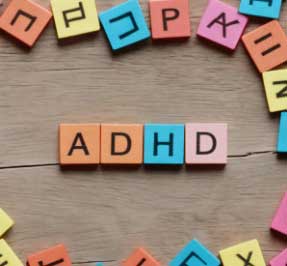
Image provided by ShutterShock
Written by: Paige Dildy, LMSW
Has your child been diagnosed with ADHD?
If so, do you notice that they have a difficult time accepting corrections or any type of discipline? This might mean that your child needs further evaluation for Rejection Sensitive Dysphoria (RSD).
RSD is most commonly associated with an ADHD diagnosis and can be characterized by angry outbursts, crying spells, low self-esteem, self-harm language, and in some cases, it can lead to suicidal language and even homicidal language.
The thought of a child experiencing these kinds of big emotions can be very scary for the child and for parents and families. The best approach for parents and caregivers is to first have your child evaluated. Then, find your child a therapist/counselor, work with the school administration (school counselor) for your child to ensure they are supported in their learning environment, and lastly begin the process of learning about skills at home that will help with emotional regulation.
It’s never a bad idea for parents to find a separate provider to help with challenges around addressing symptoms of an RSD diagnosis in the home.
Some grounding techniques to help your child if they’re in distress are to:
1. Take a break (take a walk with them outside or offer to do something that has been known to calm them)
2. Offer your affection (let them cry and offer hugs and supportive language)
3. Validate their feelings (try not to bargain with them to feel differently than they do in the moment)
4. Breathe with them (deep breath in, hold for 2 seconds, long breath out). With smaller children, you might guide them by saying to smell the flowers and blow out the candles.
RSD can bring challenges that might seem unbearable for the child and the parent or caregiver. Please remember there are resources in our local community that can offer help and, hopefully, bring some relief to families struggling with the stress that comes with RSD.
If you or someone you know might need additional support, call BeMeBetter at 505-293-2881 or email info@bemebetter.com.
Alternatively, you can submit an inquiry for services on BeMeBetter’s “Contact Us” page or email a provider directly from the “Who We Are” page. We offer consultations, and services, and provide you with further support.
You’re not alone!


